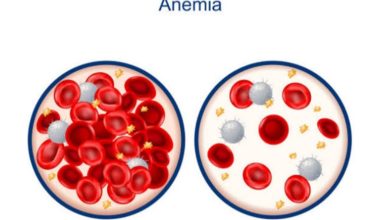Anti-aging and Wellness TipsBody CareHealth TipsHealth TrendsHealthy Food
Food Safety Matters: How to Prevent Food Poisoning and Protect Your Well-being

Food safety is a crucial aspect of maintaining good health and preventing foodborne illnesses. Food poisoning can cause various symptoms like nausea, vomiting, diarrhea, fever, abdominal pain, and in severe cases, it can even lead to hospitalization or death.
Here are some important tips to ensure food safety and prevent food poisoning:
- Cleanliness:
▪️Always wash your hands thoroughly with soap and warm water for at least 20 seconds before handling food.
▪️Clean and sanitize all utensils, cutting boards, and countertops before and after preparing food.
▪️Rinse fruits and vegetables under running water to remove any dirt or bacteria. - Separation:
▪️Keep raw meat, poultry, seafood, and eggs separate from other foods in your shopping cart, refrigerator, and during preparation.
▪️Use different cutting boards and utensils for raw and cooked food to avoid cross-contamination. - Cooking:
▪️Cook food thoroughly, ensuring that it reaches a safe internal temperature to kill harmful bacteria. Use a food thermometer to ensure proper cooking temperatures.
▪️Meats should be cooked to the following temperatures: 145°F (63°C) for whole cuts of beef, pork, veal, and lamb; 160°F (71°C) for ground meats;
▪️Poultry should be cooked to a minimum internal temperature of 165°F (74°C).
▪️Seafood should be cooked until it is opaque and flakes easily.
▪️Reheat leftovers to at least 165°F (74°C) before consuming. - Storage:
▪️Refrigerate perishable foods promptly, especially those that require refrigeration, such as dairy products, meat, and seafood.
▪️Store raw meat, poultry, and seafood on the lower shelves of the refrigerator to prevent any juices from dripping onto other foods.
▪️Keep your refrigerator temperature at or below 40°F (4°C) and your freezer temperature at or below 0°F (-18°C). - Avoid risky foods:
▪️Stay away from raw or undercooked eggs, as they may contain harmful bacteria like Salmonella.
▪️Avoid consuming raw or undercooked meat, poultry, seafood, or unpasteurized dairy products.
▪️Be cautious of consuming raw sprouts, as they may be contaminated with bacteria. - Purchase and food sources:
▪️Buy food from reputable sources and ensure that they have been handled and stored properly.
▪️Check food labels for expiration dates and proper storage instructions.
▪️Do not buy or consume food that has an unusual odor, color, or texture, as it may be spoiled. - Safe handling of leftovers:
▪️Refrigerate or freeze leftovers within two hours of cooking to prevent bacterial growth.
▪️Store leftovers in shallow containers to promote quick cooling.
▪️Use leftovers within 3-4 days, and reheating them to a safe temperature before consumption. - Be cautious of high-risk populations:
▪️Pregnant women, young children, older adults, and individuals with weakened immune systems are more susceptible to foodborne illnesses. ▪️Take extra precautions when preparing food for these individuals. - Educate yourself:
▪️Stay informed about food recalls and advisories to ensure you are not consuming potentially contaminated products.
▪️Stay updated on proper food handling and cooking practices by referring to reputable sources such as the National Centers for Disease Control and Prevention or the National Food and Drug Administration.

By following these guidelines, you can reduce the risk of foodborne illnesses and ensure the safety of the food you consume. Remember that proper food safety practices are essential for maintaining good health and well-being.



